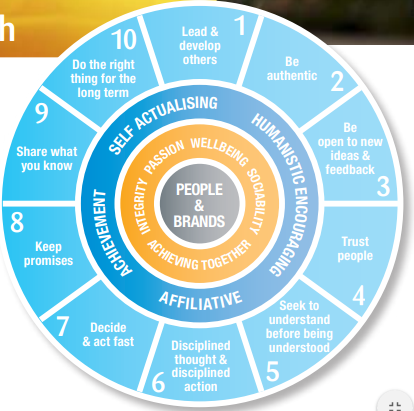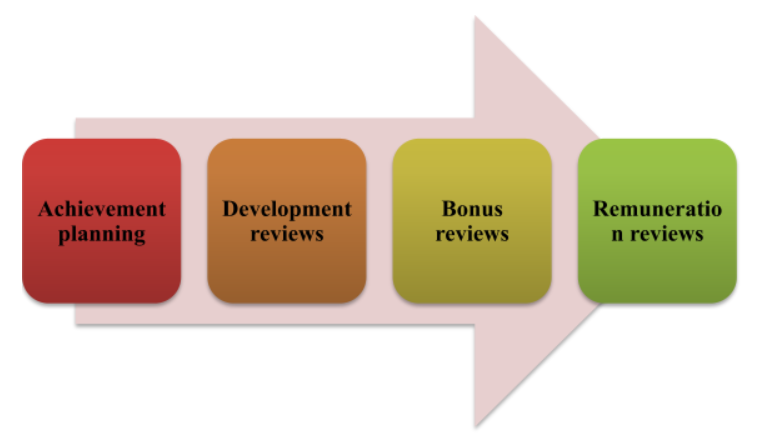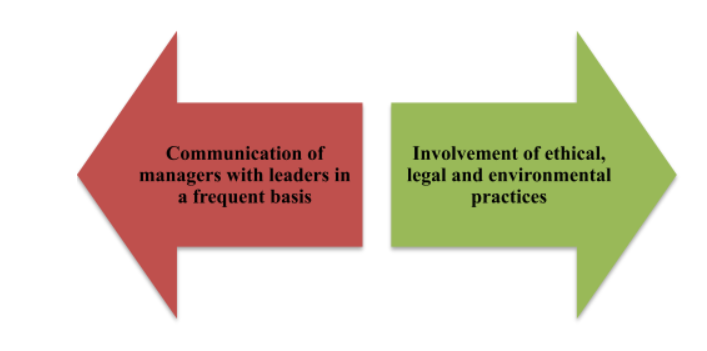Leadership Assignment Evaluating Lion Case Study
Question
Task
Your leadership assignment must answer the following questions:
Question 1
Synthesize and evaluate the Lion case study from a perspective of your knowledge of ‘responsible-leadership’ theories, and identify the application of these theories at Lion. Discuss whether these theories are working, or not-working, and why/why-not?
Question 2
Bringing change to a company can be challenging. This might be through the introduction of new service(s), new technology, and/or newly proposed management decisions or policies.
You have just been appointed as General Manager for a mid-size manufacturing plant (employing 500 people) with a turnover of $M25. The company is currently losing money and is reported as having a negative culture and sloppy work practices. The company has also been criticized for dumping waste in the local river and has been fined on several occasions by the government Environmental Protection Agency. As a result, its reputation has been seriously damaged, and the board of directors wants this addressed.
You need to make several changes to this organization, and you have the support of the Board of Directors to ‘turn this business around’. Using ‘Responsible-Leadership’ theories, how would you go about making these changes, including how you would communicate change? You also wish to encourage employees to commit to the change-agenda? Describe and apply appropriate ‘responsible leadership’ theories in putting this business back on track.
Answer
Answer 1
Evaluating the case study of Lion on the basis of “responsible-leadership theories”
In the modern era of business growth and development, most companies want to derive huge levels of productivity from the people. In this respect, it becomes obvious that each of the business companies is trying to introduce a "responsible leadership" pattern that must be effective to support the process of people management. For example, in the case study, it has been observed that the largest beverage and food company in Australia, Lion, is strongly focused to sustain leaders' capabilities for the growth of the business (Financial review case studies, 2020). The most interesting fact is that all of the employees are considered in the process of decision making and each of the employees is provided with effective leadership development and training programs. In the views of Muff, Liechti & Dyllick (2020), responsible leadership is based on the surrounding system of a company that includes political, economic, and cultural as well as technological which may lead to enhance the process integrity. From the case study, it is clear that each of the business activities in Lion is managed with the collaboration of leaders and employees.

Figure 1: Main aspects of responsible leadership
(Source: Developed by author)
In addition to this, it can be highlighted that the employees of Lion are focused to build up a stable relationship with the external stakeholders, so that they may get a chance forward to the business goals. Besides, trusting people, development of understanding ability as well as effective decision making are some of the leadership attributes in Lion which are also the base of responsible leadership (Financial review case studies, 2020). Apart from this, the theory of ethical leadership and authentic leadership are some of the responsible leadership theories which principles are also strongly followed in the case study. One of the key responsibilities of a leader is to support his or her subordinates' well-being along with encouraging them in the right manner (Waldman, Siegel & Stahl, 2019). In this respect, the business leaders in Lion follow effective strategies that make them able to enhance business sustainability along with people’s efficiency both internally and externally.
Applying the theories with the case study of Lion
The responsible leadership theory is strongly followed by the leaders of Lion. For example, it can be presented that the authority monitors the numbers of employees who get physical injuries every day and it makes them able to secure employees' safety and security in an effective way. Along with this, there is an extensive training session for the leaders through which they can be able to increase their knowledge regarding the process of employees' safety (Financial review case studies, 2020). Therefore, it is clear that responsible leadership is the root cause of the effective business management process in a concerned company. As described by Noda (2017), a leader can be taken as responsible only when he or she is efficient enough to handle the employee management functions as well as securing their personal and social needs. Thus, it can be mentioned that the business departments of Lion follow “responsible leadership” theories for managing employees’ performance levels along with supporting them to enhance contribution to the business process. The authority maintains a cycle of four stages to developing employees' efficiency through proper leadership patterns. The stages are- achievement planning, development reviews as well as bonus reviews, and remuneration reviews (Financial review case studies, 2020). These are critical for securing the personal and economic needs of manpower.

Figure 2: People management strategies in Lion
(Source: Self-created)
Therefore, it becomes prominent that the internal business culture and functional attributes are totally controlled by responsible leadership theory’s principles. The employees need to be guided properly and encouraged to maintain a sustainable business relationship with the authority while the authority tries to fulfill their basic needs with effective leadership. In this aspect, it is necessary to analyze whether the theory is working or not in the business context of Lion.
Determining the effectiveness of the theories
Based on the above analysis regarding the leadership of Lion, it can be mentioned that the theory of responsible leadership is working quite better in the organization. As stated by Tsaur & Teng (2017), a leader must be directly engaged to guide employees and understanding their personal abilities to manage the business process in a sustainable way. Based on this fact, it can be evident that the theory is working properly in the business process of Lion. The authority always wants to explore the wider community and operate their business process with the help of a strong and effective employee base. Providing a good amount of bonus and effective remuneration is helping their way to encourage the work force to be more engaged in the process of sustainable development. Apart from this, it can be presented that ‘Quality safety conversations’ between leaders and team members are used to provide feedback on the positive safety behaviors of the employees (Financial review case studies, 2020). This, in turn, provides plenty of scopes to the employees to improve their skill gap.
Not only this but also they are provided online Safety and Wellbeing module for both existing employees and new starters. These pieces of evidence prove that the responsible leadership principles have strongly been followed in some organizations that support the authority to maintain business growth in a specific way. As per the comments of Teng & Tsai (2020), in such an uncertain business environment, it is necessary for a company to secure their work force base at first, then only they can be able to target and achieve growth. Thus, it can be highlighted that the Lion authority emphasizes increasing customers' satisfaction rates through the development of employees' performance levels (Financial review case studies, 2020). The case study has explained every aspect of leadership in Lion that makes it clear that “responsible leadership” is the base of their business sustainability. Hence, the theory is working properly in the case study, and each aspect such as maintaining trust, leading others as well as openness and disciplined actions have been clarified in depth.
Answer 2
Introduction
The involvement of feasible changes in a company needs to be based on the involvement of new services, modern technologies as well as effective decisions made by the managers. It has been observed in the case study that the manufacturing plant has good numbers of employees that is 500 but their work policies and business decision-making processes are not developed. Weak environmental practices are making their reputation weaker and for this reason, the authority wants to address the issues. This part of the discussion includes how a general manager of the company as well as key employee management ways to engage them in the change agenda can communicate the changes to the process.
Use of “responsible leadership theories” to address the changes
The responsible leadership theory sheds light on the fact that if an organization becomes able to develop and maintain a healthy relationship with the stakeholders, it may provide them support to manage the business functions in a stable way. For instance, it can be mentioned that currently the company does not follow effective work practices and includes a negative culture in business. In this regard, first, it is important to develop organizational decision-making ability. As explained by Marques & Gomes (2020), when the responsible leadership approaches are incorporated in business culture, the aspects of ethics, culture, and organizational performance system start to develop. Therefore, following this leadership's principles the manufacturing plant can move forward to make strategic business decisions. On the other hand, it has been seen that the company is not environmentally conscious, therefore they can focus on developing external business relationships with the Government agencies that can support them and guide with environmental protection guidelines.
Apart from this, it can be mentioned that the manufacturing plant can hold its market reputation by revising their work policies with the help of the board of directors. As described by Shi & Ye (2016), the responsibilities of leaders are based on guiding employees and initiate the process of business development in a sustainable way. In this regard, the responsible leadership theory focuses on the fact that until or unless the business culture has been developed, it is not possible for a company to manage its external business image. It can be highlighted that the business authority of the manufacturing plant needs to introduce modern technologies in the system so that the rate of environmental degradation can be controlled. In this aspect, the leaders need to train the employees to use the modern tools properly, so that it can be easier for the authority of the manufacturing plant to foster the ethical and legal process of business management.
Ways to communicate changes
In order to communicate changes, the general manager of the company can support its business sustainability through the implementation of "responsible leadership" theories. The key ways to bring changes can be as highlighted below-
- The manager can communicate with the leaders in a frequent manner for making them understand the needs for changes. As opined by Lips-Wiersma, Haar & Wright (2018), when the leaders of a company become able to guide the employees properly, it becomes effective to bring changes for sustainable development in the end. In this regard, the required changes in the manufacturing plant must be based on applying innovative strategies such as meeting the needs of stakeholders and encouraging the skills of manpower to mitigate organizational issues.
- Besides, the organizational authority can emphasize on development of the service process by considering different ethical, legal as well as environmental guidelines. The board of directors can be engaged in the process of revising sloppy work practices to effective business practices with the help of “responsible leadership” principles.

Figure 3: Ways to bring changes in the service of manufacturing plant
(Source: Self-created)
Ways to encourage employees to commit to the change-agenda
In order to involve the employees of the manufacturing plant in the change agenda, it is necessary to encourage them in an effective way and assess their capabilities for meeting business goals. As per the comments of Afsar et al., (2019), the responsibilities of leaders must be adjusted with the development of the capabilities of the employees. For example, it can be mentioned that the employees can be included in a training session regarding the eco-friendly manufacturing functions and this training must be provided by responsible leaders. It has been seen that "responsible leadership" is not only based on the development of employees' skills with guidance but also it is linked with the fact that how efficiently they can communicate with the external business environment.
The leaders can suggest the managers regarding the process of bringing employees friendly business changes such as performance-based bonuses, which may encourage them to work in a better manner. As stated by Ta?tan & Davoudi (2019), the leaders and as well as the employees of an organization must be engaged collaboratively in the process of business growth. Similarly, it can be mentioned that if the employees are trained properly and provided with scopes of career growth, they may contribute to saving the business from a bad reputation in the market. Serving the demands of external stakeholders and following ethical guidelines are effective for the responsible leaders to meet business objectives in an effective way. Thus, it becomes clear that it is crucially important to include the employees in the change agenda for overcoming business issues and regain the lost reputation in markets.
Conclusion
Thus, it can be concluded that the concerned manufacturing plant can initiate the process of business development by focusing on environmental and legal guidelines of the local area. Their company has been accused of dumping waste in the local river and has been fined on several occasions. Thus, it is necessary to include proper business ethics in such a manner that ultimately leads to a revive business reputation and provides the company with a stable business base. Additionally, it can be mentioned that if the process of manpower management with the help of healthy business practices will be developed, handling business issues and fostering sustainability will not be the problems to the authority.
Reference list
Question 1
Financial review case studies. (2020). Leadership, diversity, and the importance of great people. Retrieved 15 November 2020, from https://www.afrbiz.com.au/media/k2/attachments/ABC164_LionLeadership_A4_CS2014_05.pdf
Muff, K., Liechti, A., & Dyllick, T. (2020). How to apply responsible leadership theory in practice: A competency tool to collaborate on sustainable development goals. Corporate Social Responsibility And Environmental Management, 27(5), 2254-2274. doi: 10.1002/csr.1962
Noda, T. (2017). Whole Person Leadership: What makes you a leader? Hint: It's not how many followers you have. IESE Insight, (34), 6-6. doi: 10.15581/002.opi-4168
Teng, H., & Tsai, C. (2020). Can tour leader likability enhance tourist value co-creation behaviors? The role of attachment. Journal Of Hospitality And Tourism Management, 45, 285-294. doi: 10.1016/j.jhtm.2020.08.018
Tsaur, S., & Teng, H. (2017). Exploring tour guiding styles: The perspective of tour leader roles. Tourism Management, 59, 438-448. doi: 10.1016/j.tourman.2016.09.005
Waldman, D., Siegel, D., & Stahl, G. (2019). Defining the Socially Responsible Leader: Revisiting Issues in Responsible Leadership. Journal Of Leadership & Organizational Studies, 27(1), 5-20. doi: 10.1177/1548051819872201
Question 2
Afsar, B., Maqsoom, A., Shahjehan, A., Afridi, S., Nawaz, A., & Fazliani, H. (2019). Responsible leadership and employee's proenvironmental behavior: The role of organizational commitment, green shared vision, and internal environmental locus of control. Corporate Social Responsibility And Environmental Management, 27(1), 297-312. doi: 10.1002/csr.1806
Lips-Wiersma, M., Haar, J., & Wright, S. (2018). The Effect of Fairness, Responsible Leadership and Worthy Work on Multiple Dimensions of Meaningful Work. Journal Of Business Ethics, 161(1), 35-52. doi: 10.1007/s10551-018-3967-2
Marques, T.M. & Gomes, J.F., (2020). Responsible leadership andversus responsible management. In Research Handbook of Responsible Management. Edward Elgar Publishing.
Shi, Y., & Ye, M. (2016). Responsible Leadership: Review and Prospects. American Journal Of Industrial And Business Management, 06(08), 877-884. doi: 10.4236/ajibm.2016.68083
Ta?tan, S., & Davoudi, S. (2019). The relationship between socially responsible leadership and organisational ethical climate: in search for the role of leader's relational transparency. International Journal Of Business Governance And Ethics, 13(3), 275. doi: 10.1504/ijbge.2019.10020739












